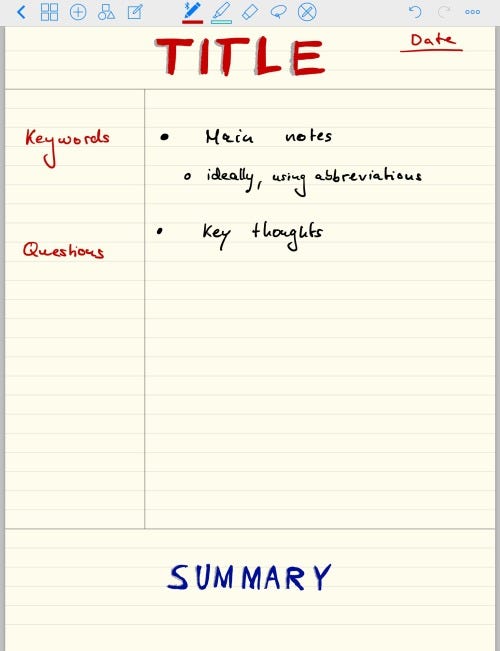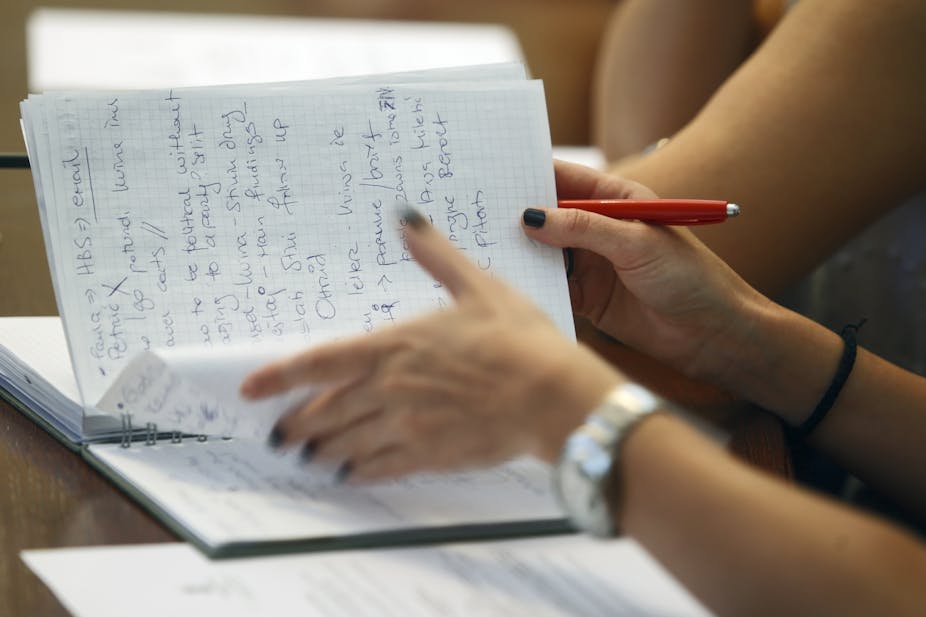Note taking is an underrated skill.
- Importance Of Taking Notes Quotes
- Importance Of Taking Notes And Documenting Patient Information
- The Importance Of Taking Notes When You Study
Handwritten notes are a powerful tool for encrypting embodied cognitionand in turn supporting the brain’s capacity for retrieval of information. And secondly, when you take notes by hand, your. Document key decisions— Documenting important decisions is critical for good note taking. This might include a course of action directed by a manager or a pricing decision for a sales opportunity. It’s simply a waste of time to have to revisit information to reach the same conclusions. The Importance of Rain Forests Rain forests clean the air by producing oxygen. Some rainforest plants have healing properties and can be used as medicine. Rain forests are also known to affect the water cycle and weather. The threat of deforestation, however, means these important rain forests may disappear. In this tutorial we will guide you to built your writing style by taking notes and it surely help you to write a perfect piece as it is very important to tak. The importance of note taking has actually never been greater. Today, when we are all always in a hurry, when we have to be everywhere in time, when we have to remember more than we can, note taking is vital. Note taking is becoming more crucial than ever. No one can keep in mind whatever he wants.
Note taking isn’t just important for college students, it’s a valuable life skill.
If you are able to take good notes, you will be more effective in pursuing your goals whether you are a student, writer, or entrepreneur.
There’s a correlation between taking notes and creative thinking. Creativity isn’t a mythical power, it’s about having lots of ideas and melding the best ones together.
Where do you record and flesh-out these ideas? Notes.
Both Richard Branson and Bill Gates, notable (pun!) creative thinkers, are avid note takers. Branson offers a clear instruction, “It doesn’t matter how you record your notes — as long as you do.”
Effective note taking helps you to remember information and aids your understanding of that information. Once created, your notes then act as a record of your thinking and they also provide the source material for your next creative or business project.
Note taking is a specialist form of writing. This article will help you develop some strategies to improve your command of a vital skill.
Notes boost your understanding
You will only truly understand concepts when you have taken the time to process them. When you take notes you are turning a passive activity – reading or listening – into an active process.
Scanning your eyes across a page or listening to someone speak is easy. Too easy.
You need to *do* something with the information you receive. Note taking is doing.
When you make your own notes, you are sorting, selecting, and combining new information with your existing knowledge. Finding where new ideas fit in with what you already know is how to synthesize unfamiliar concepts into your working knowledge.
Studies have shown that comprehension and recall are improved when people make their own notes rather than rely on materials provided by others. This is called ‘the generation effect.’
By making notes, you force yourself to construct a conceptual mental representation of the ideas you are grappling with. It is this process that helps you comprehend the subject matter you are working with.
It’s the process of writing notes, and not the notes themselves, that helps you gain command of new concepts.
How do you make notes in practice when you are holding a book or listening to a presentation? Summarise, ask questions, note where you strongly agree or disagree. Take the author’s/speaker’s ideas with a pinch of salt; don’t passively agree with everything you encounter. Be critical.


By working with new ideas, you will understand them – and their deficiencies – better.
(Looking for new ideas to learn about? Read this article on information gathering.)

Notes aid your memory
The ‘spacing effect’ is the idea that you need to revisit ideas in order to make them stick in your mind.
You don’t necessarily need to re-read an entire book or re-watch a whole lecture to remember ideas over the long-term. Instead, you can revisit your notes to refresh the ideas that you’ve encountered.
When you read over notes a day after making them, then a week later, and then a month later, you are far more likely to remember the concepts that you initially encountered.

If this sounds like a lot of work, you’re right. So filter out the fluff and only make the effort to remember things that matter to you. But make sure that you do.
The Leitner System works for this. Take three boxes: The first box contains note cards that you consult once a day; you consult the second box once a week; and you consult the third box once a month. When you are familiar with a card, you move it to the next box. When unfamiliar, you bring the flashcard to a more frequently consulted box.
The Leitner System prioritises notes that you have difficulty recalling, and depriotises notes that you know well. Fortunately, with software, algorithms eliminate the need for a multiple box, card-based system.
Digital options include:
Whatever option you adopt, build a habit of revisiting notes to keep important concepts in your working memory.
Here’s another post on digital note taking, which is about how to make the most of technology in your note taking work flow.
Adopt your own recall system and be deliberate in what you learn: don’t just flirt with great ideas, incorporate them into your intellectual toolkit.
Notes are a repository of your thinking
Even if you don’t make the effort to commit everything to your long term memory, your notes are still useful as your personal reference library, an external memory aid.
When you need to recall something that you came across a while ago, you can go over the main ideas by looking over your notes. This is why good, comprehensive notes are so useful; they are a catalogue of the best ideas you’ve encountered, and what you thought about them.
Your repository of ideas is especially useful when you keep digital notes. Digitised notes can be grouped and tagged in a variety of ways, as well as searched via text queries.
I use Devonthink for this purpose. My Devonthink library is an archive of all the notes I keep as well as other documents and materials I come across that interest me.
I use Devonthink to store my notes and document my thinking. The software then does some linguistic analysis (a fancy way of saying it counts and compares similar words) and suggests related notes and other materials.
This system means that as long as I keep good notes and store them in Devonthink, I can add any new project topics I’m working on and see related information that I’ve encountered before. Often, I’ve read something in a different context and it never occured to me that it would be relevant to my current project.
Discovering these unexpected linkages is, for me, the joy of Devonthink. It means I can turn to my notes whenever I need inspiration or additional ideas to apply to my projects.
Notes are a resource for your writing
When you have taken good, comprehensive notes and included your own reaction to ideas as well as succinct summaries of key ideas, these notes are invaluable to your future self.
Importance Of Taking Notes Quotes
Your notes become stand-alone artifacts that can prompt ideas and solutions to your current projects and tasks.
By reading over a series of notes grouped by a particular topic or theme, you can start to see how a creative project might take shape. In effect, you can use your notes to visualise your thinking on a topic. How has your prior reading (or watching, or listening) addressed this topic, and what do *you* think?
If you’ve taken good notes, you can see:
- Where you agree and disagree with the state of the field
- What ideas you agreed with, and why
- What ideas you disagreed with, and why
- How different ideas could be strengthened/weakened, and why
If you ask the above questions as you read and watch materials and note down your answers, you will have a rich collection of thought provoking material. This is the first draft not just of writing, but any complex problem you encounter.
With your own reactions to a number of sources documented in this way, your notes can be the basis of your next project. You just need to pose a question and then organise your existing notes in a certain way to create the outline of a response.
Note taking for the win
This is just a short post that I hope will encourage you to dive deeper into the skill of note taking. It’s a really useful skill to have, and is one that pays off immensely in the long term.
Importance Of Taking Notes And Documenting Patient Information
The more high-quality notes you have, the more creative you can be because you’ll have many ideas and concepts that you understand and are able to work with.
Remember:
The Importance Of Taking Notes When You Study
- ‘The generation effect’ – creating your own notes is how you process new information and understand it better
- Revist notes to incorporate important concepts into your working memory
- Use your notes as a library of your thinking. I recommend Devonthink
- Good notes can be used to inform any new project you take on
